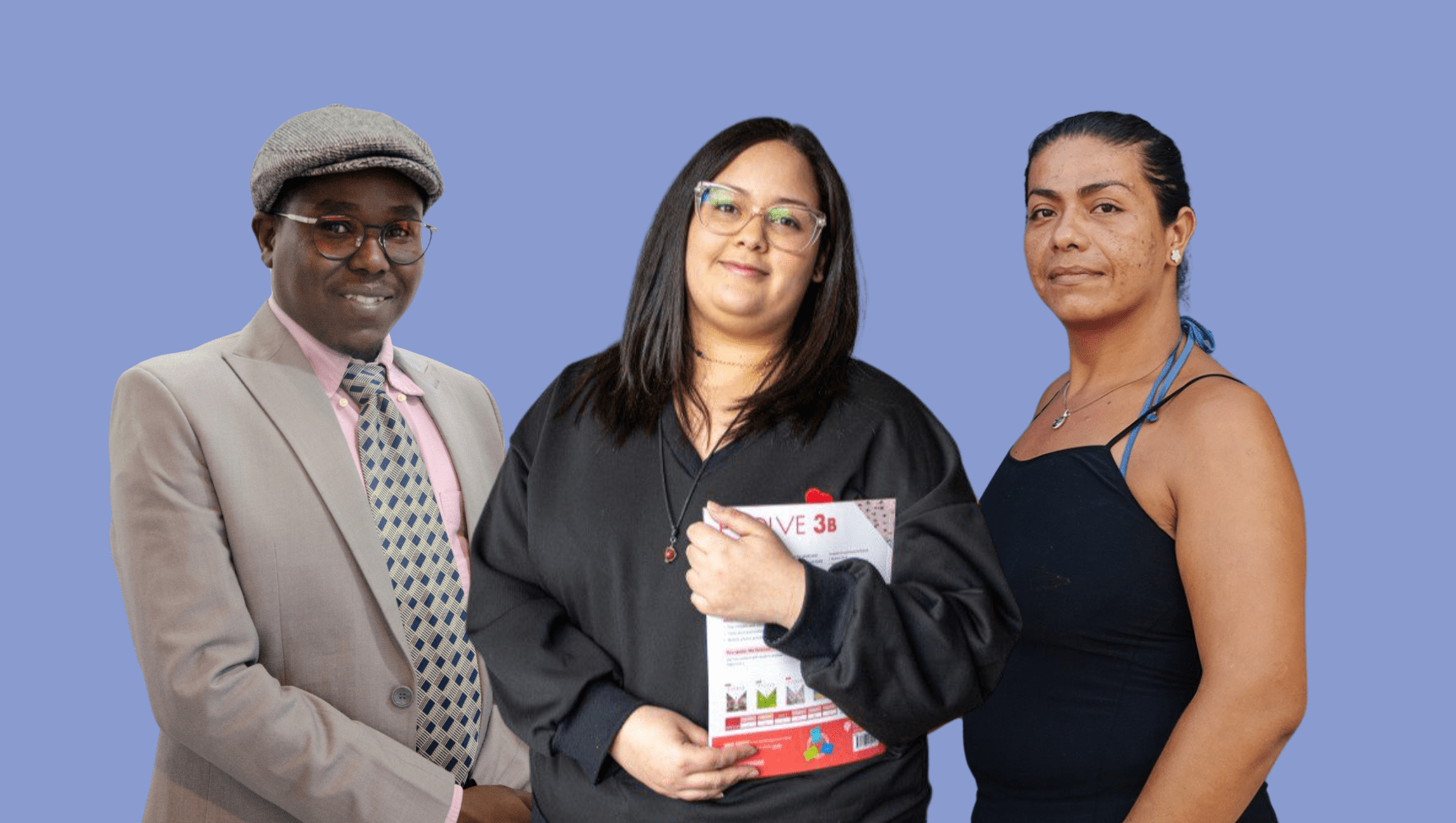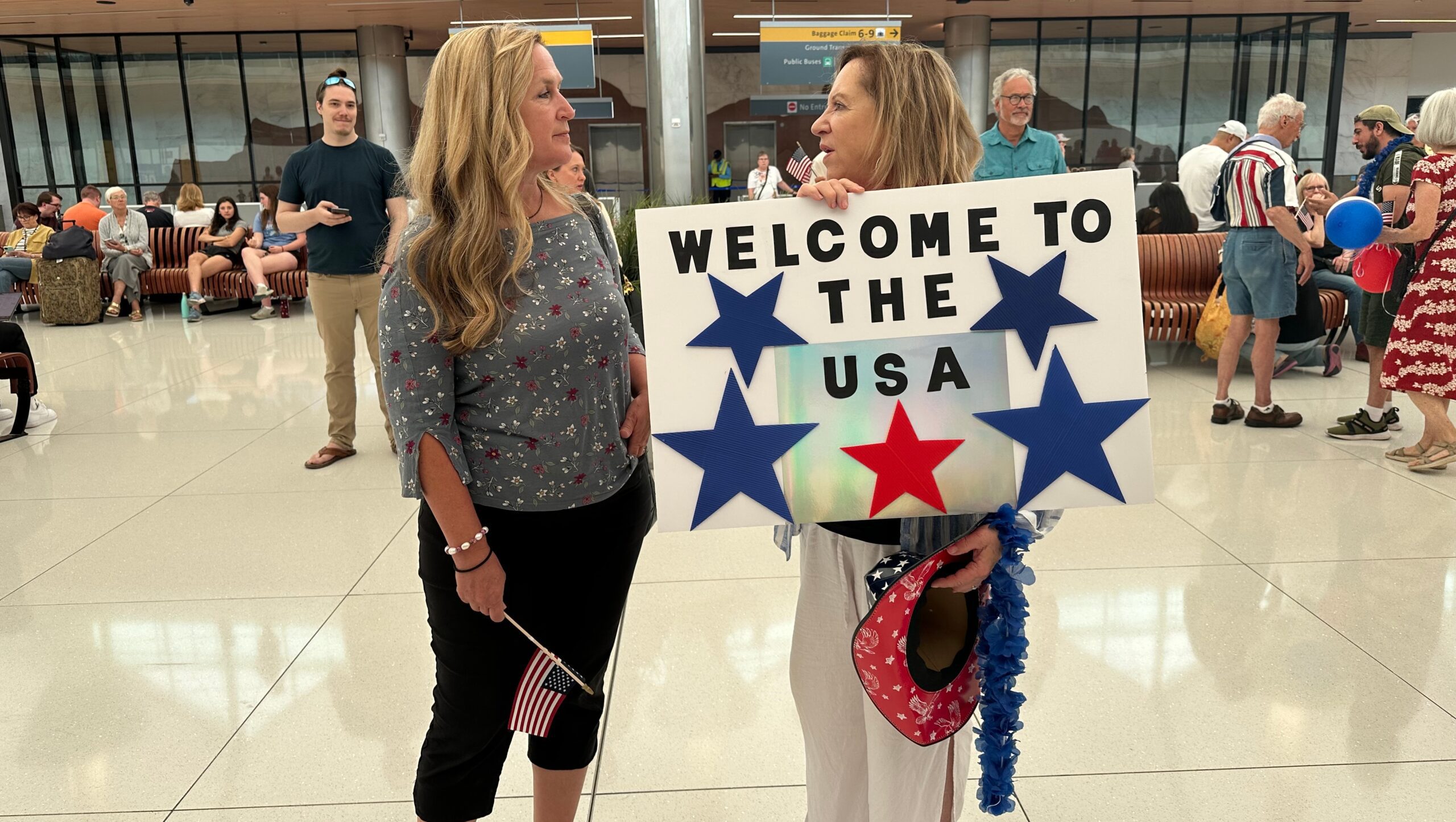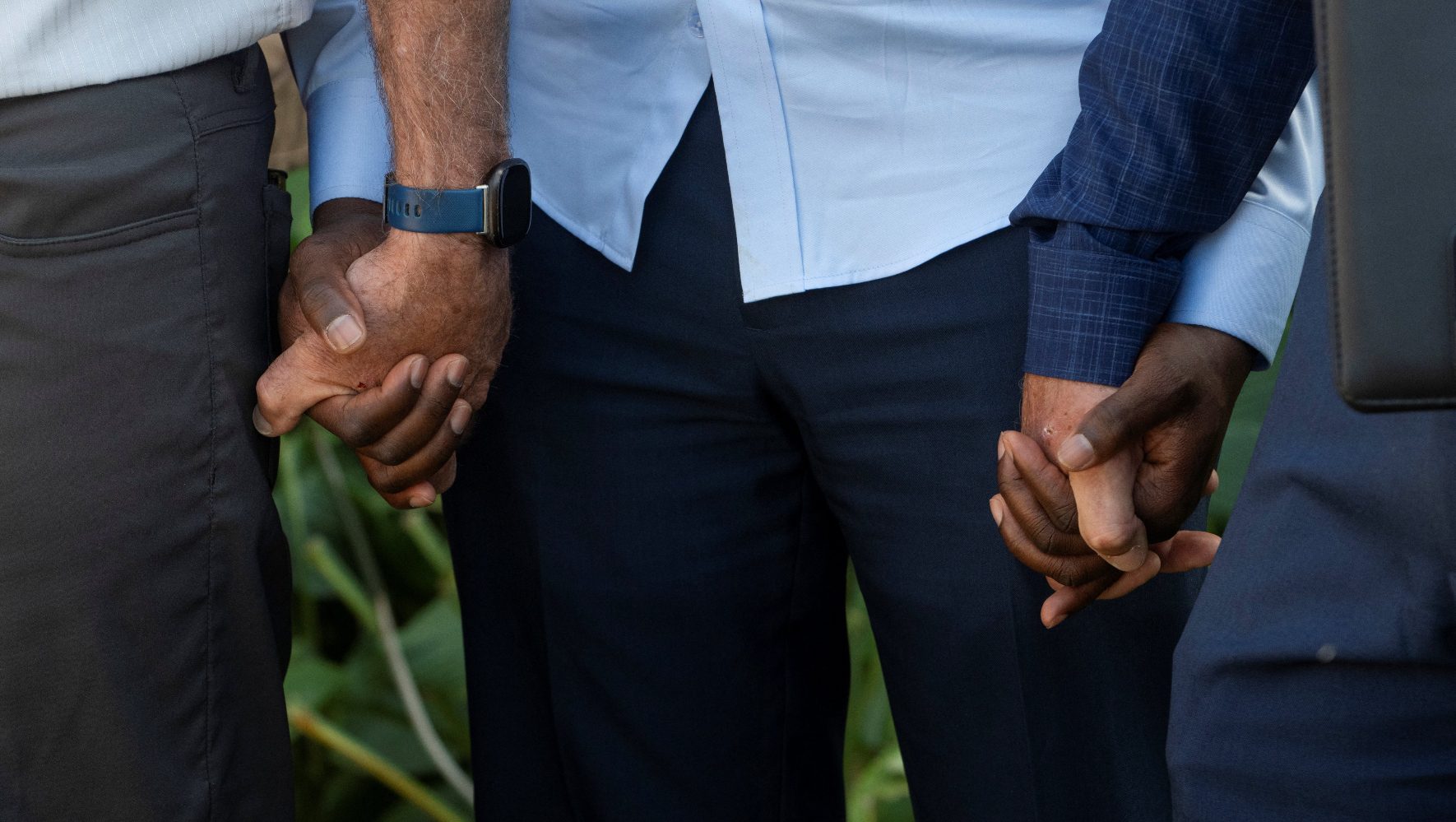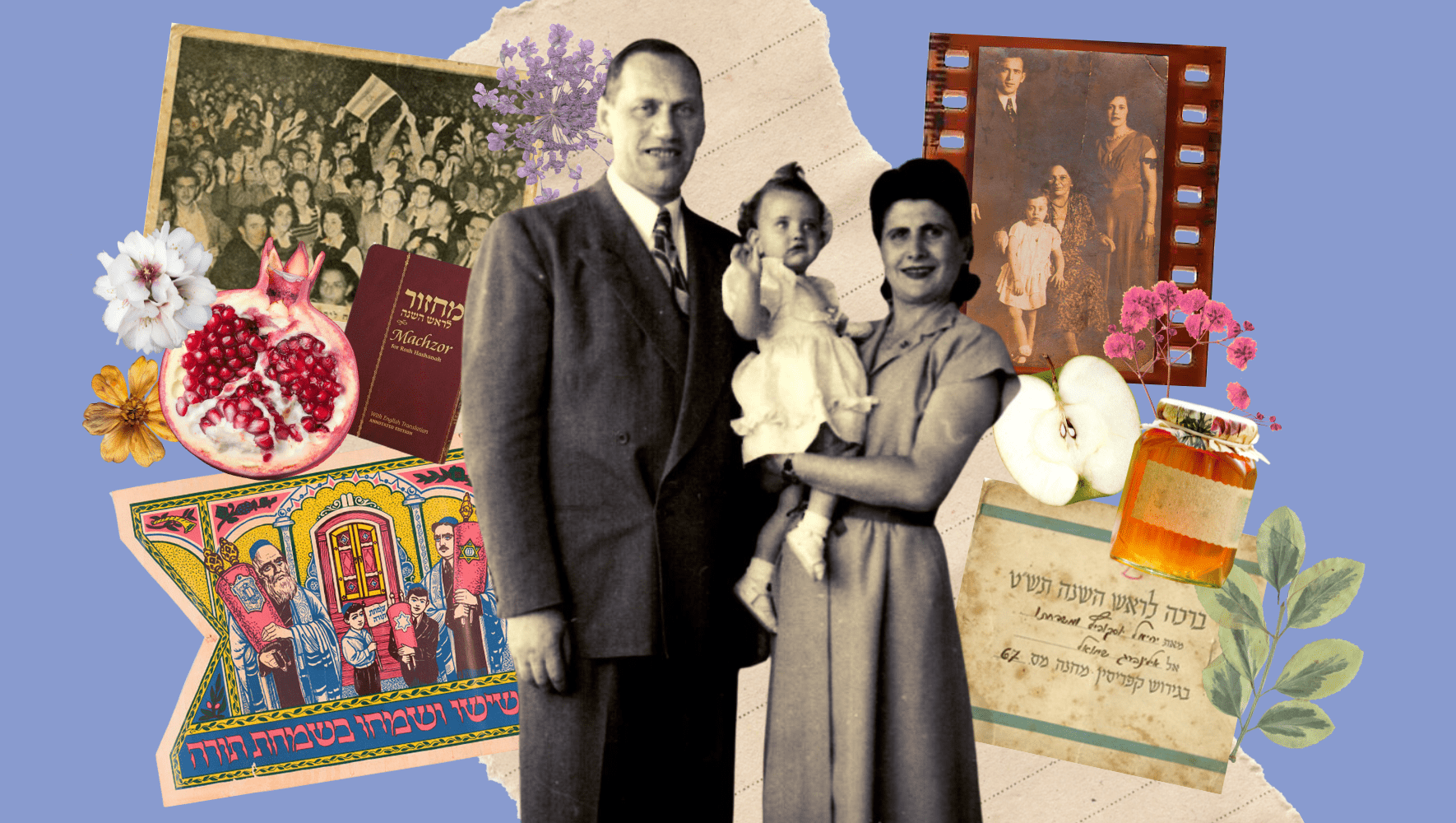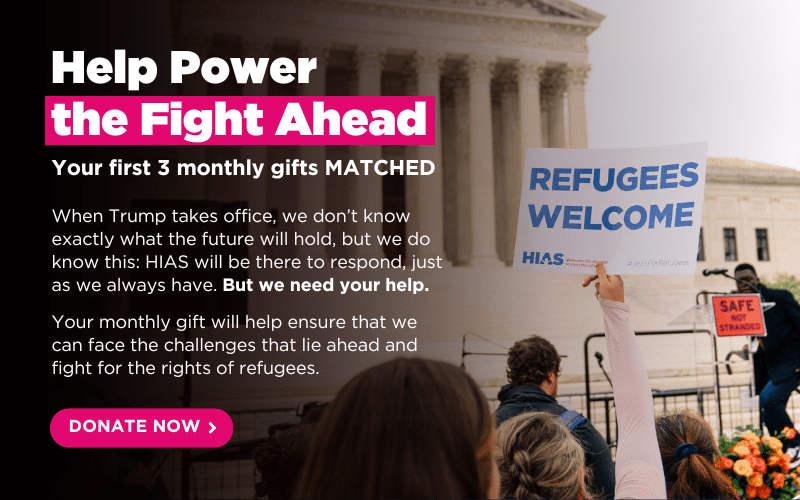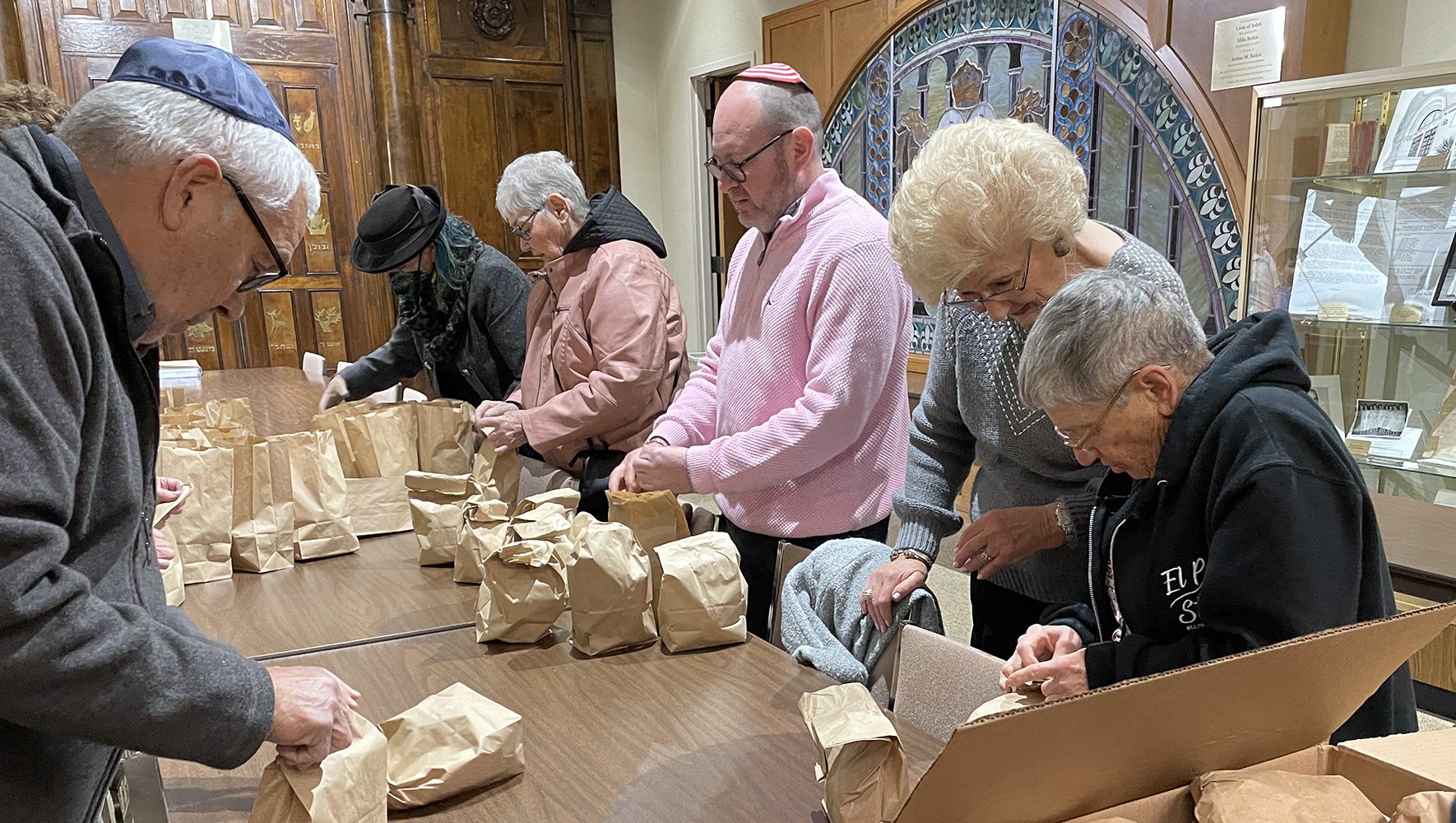
Congregants at Congregation B'nai Zion pack food and hygiene items into care packages at their Refugee Shabbat event on Februrary 2, 2024 in El Paso Texas (Peter Svarzbein)
Rabbi Sharon Kleinbaum began Friday night services on February 2 at Congregation Beit Simchat Torah in Manhattan by asking those joining the synagogue for the first time to introduce themselves. Newcomers, coming from as near as Brooklyn and as far as Paris, called out their names and hometowns from their seats. Scattered throughout the responses were hints of the evening to come: “I am here because I am a HIAS baby,” said one woman. “I received legal services from CBST, and I am honored to be here,” said another.
The stories and the work of immigrants and refugees were woven throughout the synagogue’s Refugee Shabbat service. The prayers were set to music composed by immigrants to the United States and were interspersed with a speech from Rebecca Kirzner, HIAS’ senior director for grassroots advocacy and organizing. They were accompanied by the testimonies of asylees who have won their cases with assistance from the synagogue’s Ark Immigration Clinic. Started in 2019, the Ark Immigration Clinic primarily provides legal support to LGBTQ+ and HIV positive asylum seekers. Dozens of butterflies line the wall of the synagogue’s social hall, each representing an asylee who won their case through the clinic.
“It’s helping people, saving people,” said Oleg, an asylee from Russia who won his case in January 2024 after six years of waiting. “They helped my prepare for [my] interview, they organized my case … they put confidence in me. [Now,] I can plan my life, I can think about my future.”
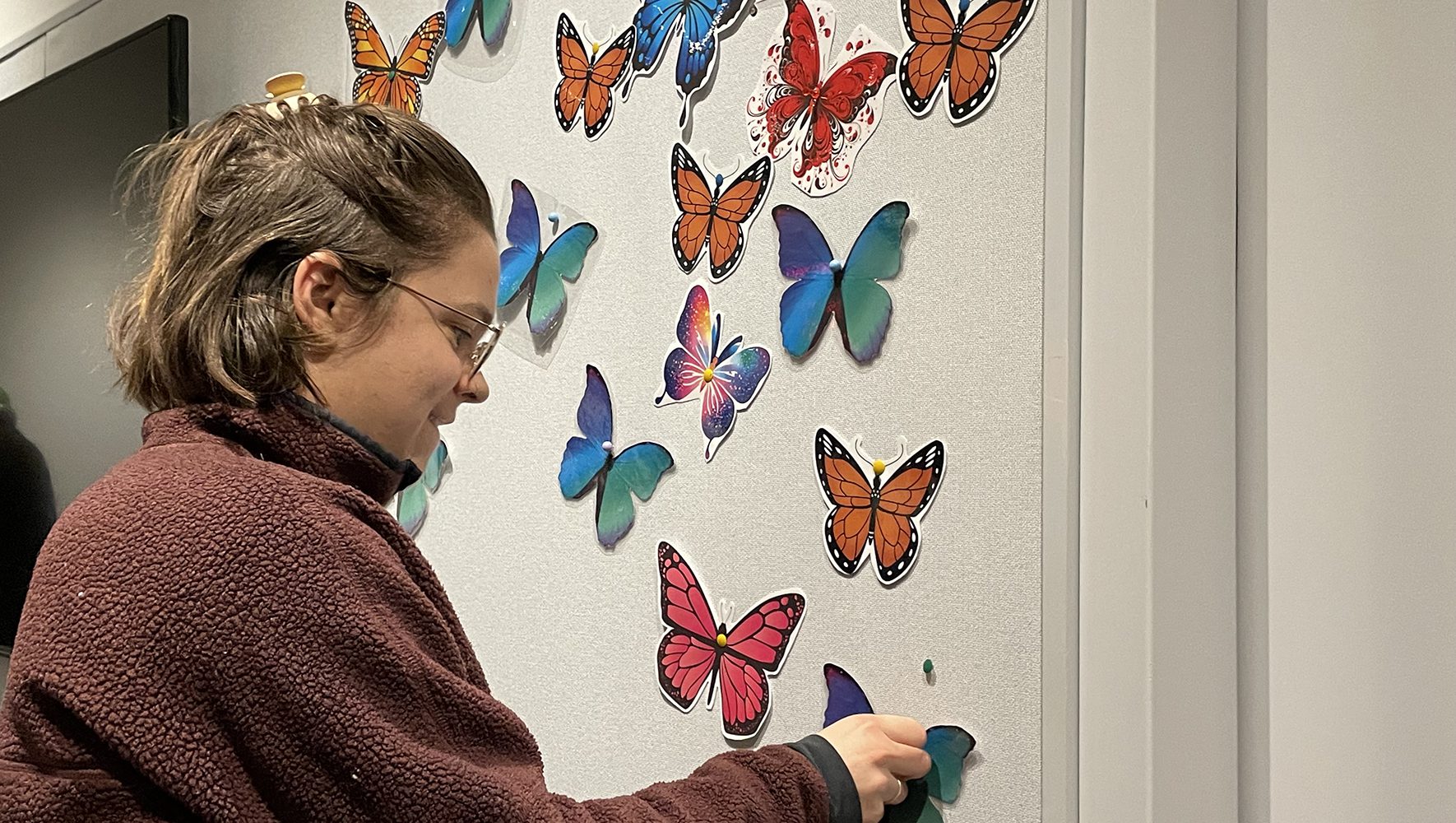
A volunteer with Congregation Beit Simchat Torah’s Ark Immigration Clinic adds a butterfly to the wall, symbolizing an asylee who has won their case with the clinic’s assistance. Three new butterflies were added to the wall for the Refugee Shabbat Event, held on February 2 in New York City. (Ayelet Parness/HIAS)
A Global Reach
For the past six years, HIAS’ annual Refugee Shabbat has invited communities and individuals around the world to learn about and reaffirm their support for refugees, asylum seekers, and other forcibly displaced people. This year’s occasion came at a difficult time. Over 110 million people have been displaced globally, a number continuing to grow rapidly due to ongoing conflicts around the world. And for Jewish communities around the world, recent events in Israel and Gaza loom large.
“In the aftermath of the October 7 attacks in Israel, there is no question that the world feels different this year — we have mourned, questioned our certainties, and have at times been angry and scared,” said Rabbi Megan Doherty, HIAS’ senior educator for community engagement. “But we have also drawn upon deep wells of resilience to affirm Jewish joy and continue the important work we are doing on behalf of and in solidarity with forcibly displaced people.”
In spite of the difficult context, more than 300 communities across the U.S. and around the world — including in Germany, the United Kingdom, Belgium, Poland, Sweden, Czechia, Ghana, Spain, Moldova, Israel, Hungary, Venezuela, and Canada — and nearly 300 individuals signed up to observe Refugee Shabbat this year. Despite this global reach, many communities used their observance as an opportunity to focus on the experiences and the needs of displaced people in their area.
In El Paso, Texas — located just across the border from Ciudad Juarez, Mexico — Congregation B’nai Zion partnered with the ADL’s Kulanu Program for a Refugee Shabbat event focused on local asylum seekers. Speakers included Marisa Limón Garza, executive director of Las Americas Immigrant Advocacy Center, and two recently arrived Jewish Cuban asylum seekers who spoke about their journey to reach El Paso. Before Shabbat began, synagogue members gathered to donate and pack food and personal hygiene items into care packages for asylum seekers via the El Pasoans Fighting Hunger Food Bank.
“It was a very inspiring and meaningful event,” said Peter Svarzbein, the synagogue’s Kulanu coordinator, community engagement manager for ADL El Paso, and a former El Paso city council member. “Going behind the headlines and being able to hear the stories and about the reality of what is occurring in our community left our congregation hungry to help further.”
Across the U.S., HIAS’ network of resettlement partners participated in Refugee Shabbat by sending speakers to provide local communities with insight into the experiences of refugees in their area. At Temple Beth-El of St. Petersburg, Florida, Gulf Coast JFCS Refugee Integration and Resource Manager Michaela Inks spoke to the congregation and then led the youngest congregants in a reading and craft activity, reading Stepping Stones, the story of a Syrian refugee family’s journey to safety. Afterward, the children decorated rocks for their kindness garden.
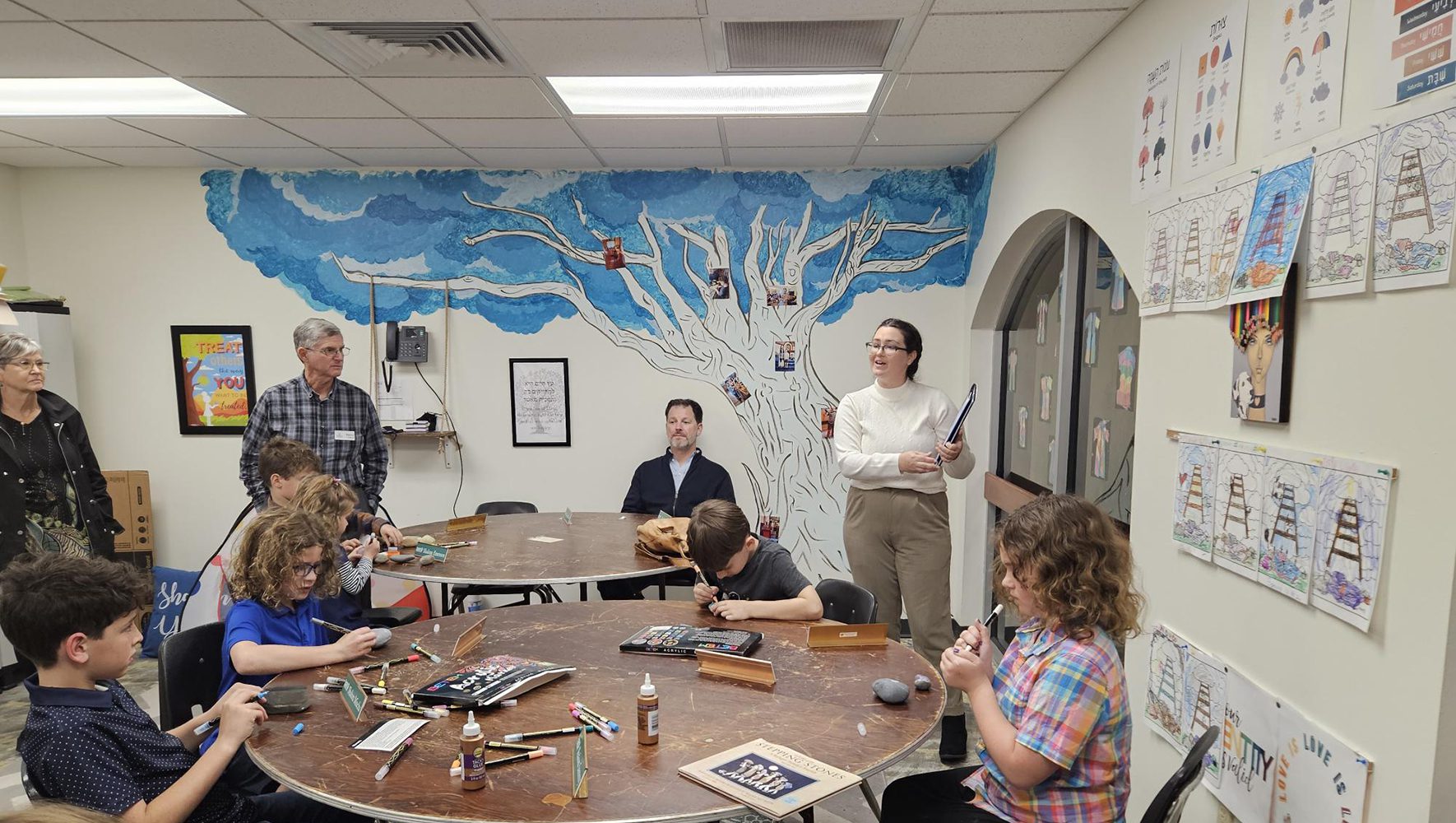
Michaela Inks, refugee integration and resource manager at HIAS resettlement partner Gulf Coast JFCS, leads a group of children in Refugee Shabbat activities at Temple Beth-El of St. Petersburg, Florida on February 2, 2024. (Temple Beth-El)
Combating Hatred Through Education
The International Jewish Center of Brussels, Belgium has been a key partner in the the EU-funded Neighbors program, which aims to combat antisemitism, xenophobia, and Islamophobia through education. For Refugee Shabbat, Saturday morning services were dedicated to welcoming refugees and newcomers. In particular, the prayer for healing was read through this lens – praying for the health and safety of refugees, who are exposed to various dangers in their home countries, during their journeys, and in host communities.
In Caracas, Venezuela, HIAS’ presence in the Jewish community has grown immensely over the last few years. This year, 60 people gathered at the Unión Israelita de Caracas for a Refugee Shabbat program on Friday night.
“HIAS is part of the Jewish community life in Caracas, and there is always someone who comes to tell how their family was helped by HIAS,” said Raquel Nuchi, HIAS’ community engagement coordinator for Venezuela. “Every year, it has become common to gather to pray for the refugees of the world. The community spaces are full of activities, [including] workshops around issues of employability, entrepreneurship, and mental health.”
Welcome Circles Taking Part
In communities across the U.S. and Europe, Welcome Circles and Welcome Corps private sponsor groups lent their personal insights with both refugees and volunteers sharing their experiences.
“I am very happy to finally have the opportunity to see the people who made our family safe,” began Andreii’s address to Temple Akiba of Culver City, California — a community that, through its Welcome Circle, helped his family get started in the U.S. after fleeing the war in Ukraine. “We always wanted to be self-reliant and independent, just as our parents had raised us to be. Expectations of help … were never inherent in us, until the outbreak of war.”
In Moldova, the Jewish community has been working as a Welcome Circle, assisting Ukrainian refugees since the beginning of the war. For Refugee Shabbat, Welcome Circle volunteers, beneficiaries, and community members came together for a meal filled with music and artistic activities exploring themes of displacement. Many other European Welcome Circles will be observing Refugee Shabbat on the weekend of February 24 — the second anniversary of the war in Ukraine.
Indeed, communities around the world will continue to observe Refugee Shabbat throughout this month and well into the spring. Next week, young asylum seekers and “befrienders” from HIAS + JCORE’s JUMP Program will attend the play “The Boy at the Back of the Class,” which tells the story of a young Syrian refugee who arrived in the U.K. without his family. The JUMP program matches unaccompanied young asylum seekers and refugees with a trained and vetted adult volunteer to provide friendship and support in navigating life in the country.
“It has been so wonderful to hear all the stories of how our community have shown up to affirm their commitment to displaced people in this difficult moment,” said Rabbi Doherty. “We have been blown away by the number of people in communities around the globe that have joined us in using Refugee Shabbat as an opportunity to rest and reflect, celebrate our accomplishments, and recommit ourselves to the creation of a more just, welcoming, and compassionate world.”



